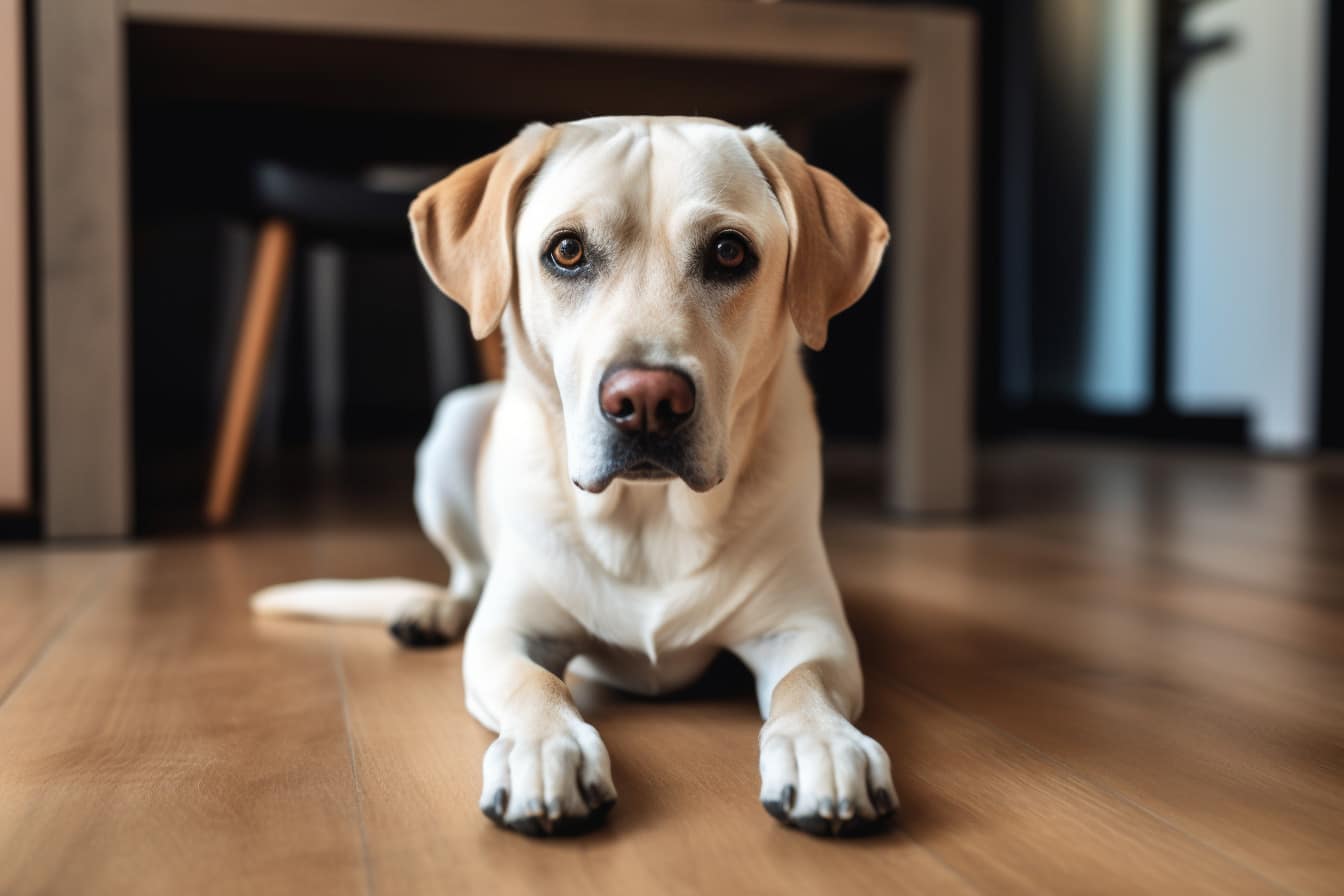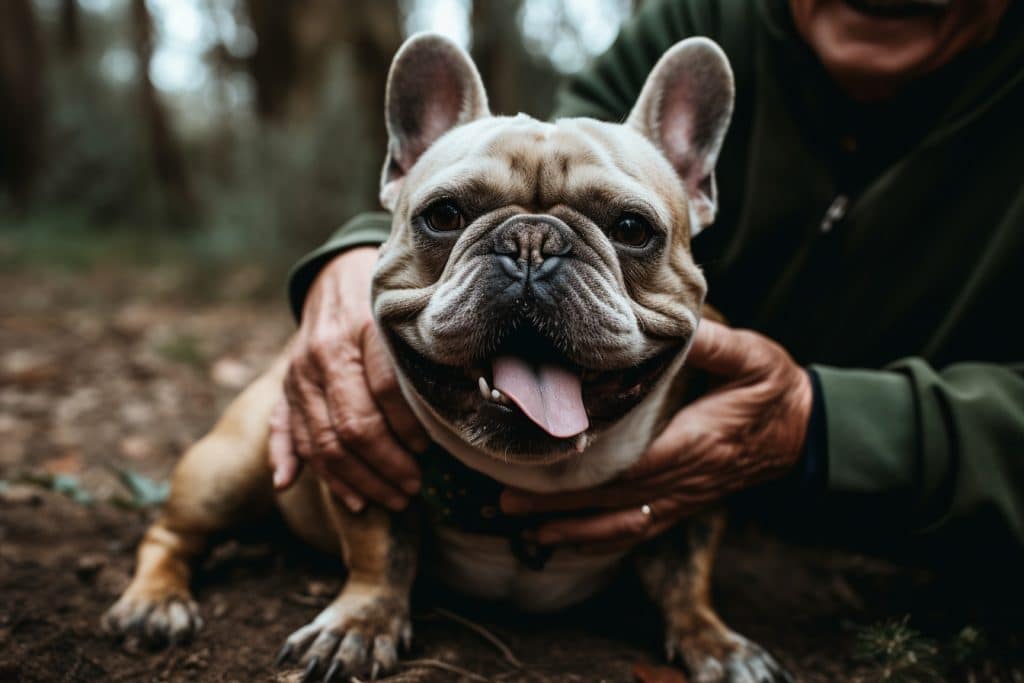My dog is not eating
It's not only concerning but can also be quite distressing as we feel an innate responsibility to help our pets, so when “my dog is not eating”, what do you do?

As a loving pet owner, you're always striving to ensure your dog receives the best care possible. You've carefully selected their food and treats, making sure they get all the necessary nutrients for a happy and healthy life. But what happens when your beloved dog suddenly loses interest in their favorite kibble or canned meal?
Don't worry – I'm here to help! My goal is to provide guidance and support for pet owners like yourself who are facing this challenging situation. In this article, we'll explore some of the reasons behind your dog's loss of appetite, along with practical tips on how to encourage them back into enjoying mealtimes once again.
Understanding Loss of Appetite in Dogs
In the enchanting world of dog ownership, there are few things more disheartening than when our furry friends suddenly develop a loss of appetite. Anorexia in dogs can cause great distress not only for your beloved pet but also for you as their caretaker.
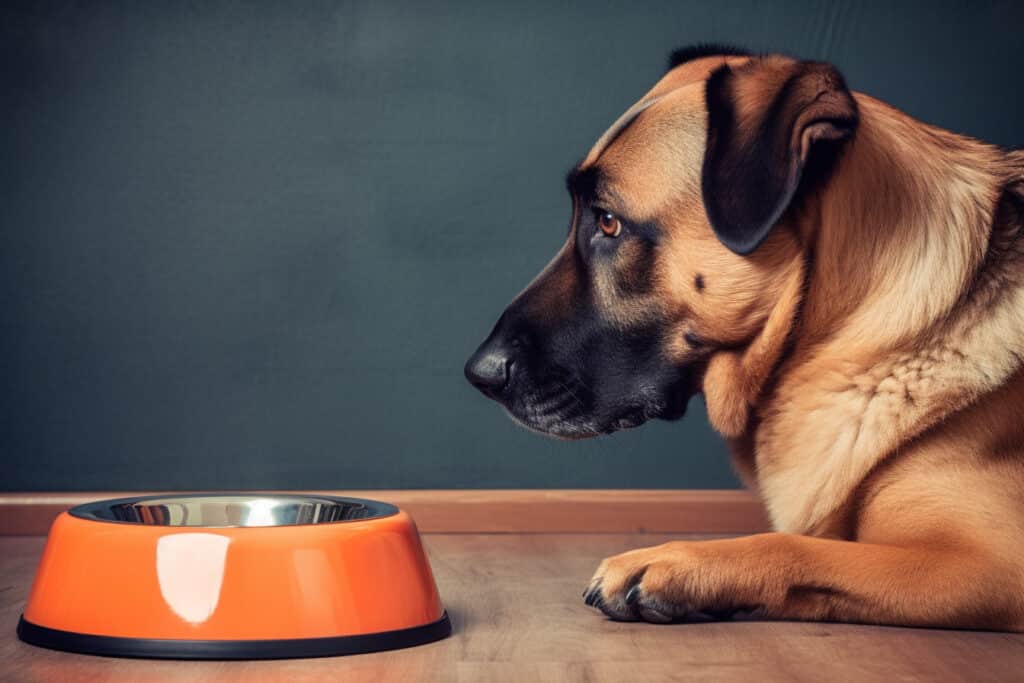
I've come across countless scenarios where concerned owners have reported their dog refusing food and experiencing canine appetite issues. In these situations, understanding the underlying reasons for a dog not eating is crucial to addressing any potential dog health concerns and ensuring that your dog receives adequate support through proper diet and nutrition.
To help navigate the complexities of loss of appetite in dogs, it's important to first recognize some common causes behind your pooch's refusal to eat. While numerous factors could be contributing to this behavior – ranging from medical conditions to environmental changes – identifying the root cause will allow you to seek veterinarian advice tailored specifically for your dog's unique situation.
With a clearer understanding of why your pet may be struggling with their meals, you'll be better equipped to address these challenges head-on and restore balance within their life. So let us delve deeper into exploring various aspects surrounding common causes of dogs not eating in order to empower ourselves with knowledge on how best to serve our loyal friends during such trying times.
Common Causes of Dogs Not Eating
There may well be more than one reason for your dog not eating.
Changes in a dog's appetite can stem from a range of factors, such as canine stress and anxiety or even simple alterations to their routine which might make them feel uncomfortable during mealtime.
As a loving pet owner, it is crucial for you to observe any changes in your furry friend that could lead to decreased appetite in dogs.

Dog nutrition plays an essential role in maintaining the overall health of our pets, so we must address this issue promptly.
One common cause for my dog not eating could be related to dog food preferences – just like us humans, dogs too can have specific tastes and may prefer certain types of food over others.
Another potential reason behind this behavior is dental problems; issues with a dog's teeth or gums can make chewing painful and discourage them from eating.
Sometimes, simply switching up the type of food or addressing underlying dental concerns can help restore your pup's enthusiasm for mealtimes.
Next, let's delve into possible medical reasons that might contribute to a decline in your dog's appetite.
Possible Medical Reasons for A Dog's Loss of Appetite
Pondering possible medical reasons for a pooch's loss of appetite can be perplexing and perturbing. There are numerous canine illnesses affecting appetite, leading to dog gastrointestinal issues or other health concerns that require professional attention.
To ensure your dog’s optimal vitality and well-being, consider these three warning signs in dogs not eating:
1. Drastic decrease or total lack of interest in food
2. Unexplained weight loss despite maintaining regular feeding habits
3. Noticeable decline in energy levels and overall enthusiasm
I highly recommend seeking the expertise of your trusted veterinarian if any of these symptoms persist beyond 24-48 hours. Keep an eye out for potential dog food allergies which may also cause a sudden disinterest in meals and consult with your vet regarding suitable alternatives tailored to their needs.

Take into account that environmental factors might also contribute to changes in your beloved pet's eating behavior; however, addressing underlying health conditions must always be prioritized. A healthy hound is a happy one, so tending to their physical wellness directly correlates with ensuring their emotional contentment as well!
With the help of sound advice from professionals and genuine empathy from dedicated caregivers like you, our four-legged family members will undoubtedly thrive on both accounts!
As we venture further into this realm of helping hands for our hungry canines, let us now discuss some home remedies and tips that can encourage them to eat when they're feeling sick or simply being fussy about their chow-time choices.
Home Remedies and Tips to Encourage Your Dog to Eat
I understand how concerning it can be when your dog refuses to eat. Luckily, there are several home remedies and tips you can try to encourage their appetite.
First, consider providing food alternatives for fussy dogs; some pets may simply need a change in flavor or texture to reignite their interest in mealtime. You could also try warming up the food slightly as this can make it more aromatic and appealing.
If your dog is not eating and appears weak, consult with your veterinarian about using dog appetite stimulants, such as prescription medications or natural supplements.
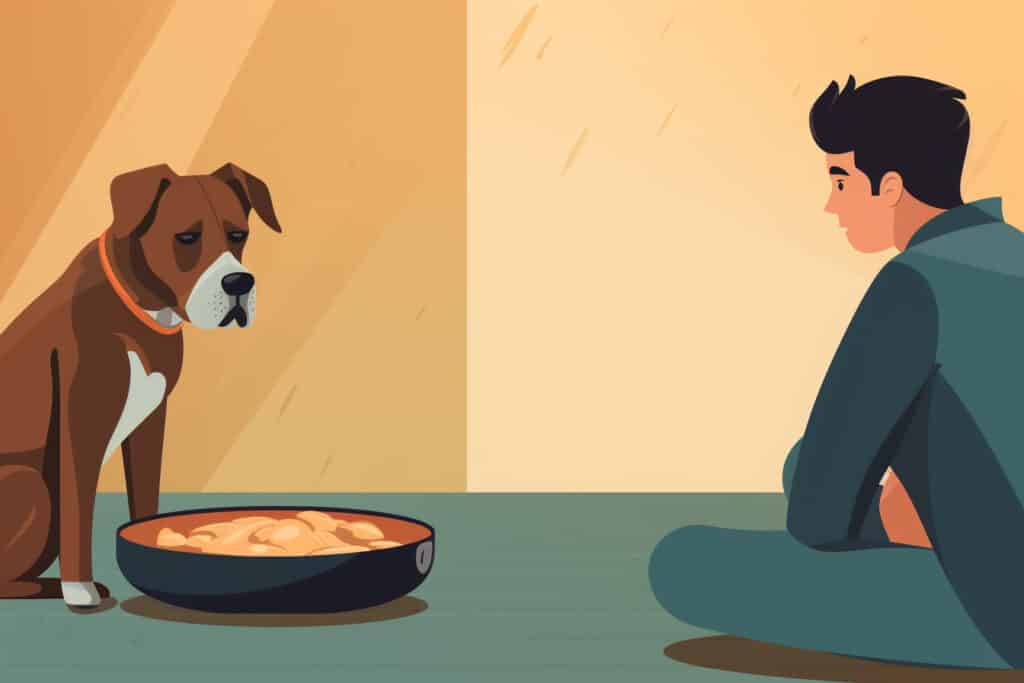
In addition to exploring different foods and stimulants, it's essential to establish a consistent feeding schedule that suits both yours and your pet's lifestyle. This will help regulate canine feeding behavior while ensuring they receive adequate nutrients throughout the day.
Make sure to monitor hydration levels too since poor water intake can have direct effects on appetite. Furthermore, engaging them in exercise or playtime before meals might increase hunger levels by burning off energy reserves.
Lastly, don't forget the importance of emotional well-being; stress and anxiety can contribute significantly towards reduced appetites in our furry friends., so provide ample love and reassurance during mealtimes.
With these strategies at hand, you'll soon find success in encouraging your dog to eat once again. Up next: learn how to prevent appetite issues from arising in the future by maintaining a healthy diet tailored specifically for your beloved companion!
Preventing Appetite Issues in The Future: Maintaining A Healthy Diet
Imagine a world where our pets never experience appetite issues again, and their tails wag with delight at the sight of every meal. Sounds like canine paradise, doesn't it?
Well, while we can't guarantee such an idyllic scenario for all dogs everywhere, there are steps you can take to prevent future appetite-related problems in your beloved pet.
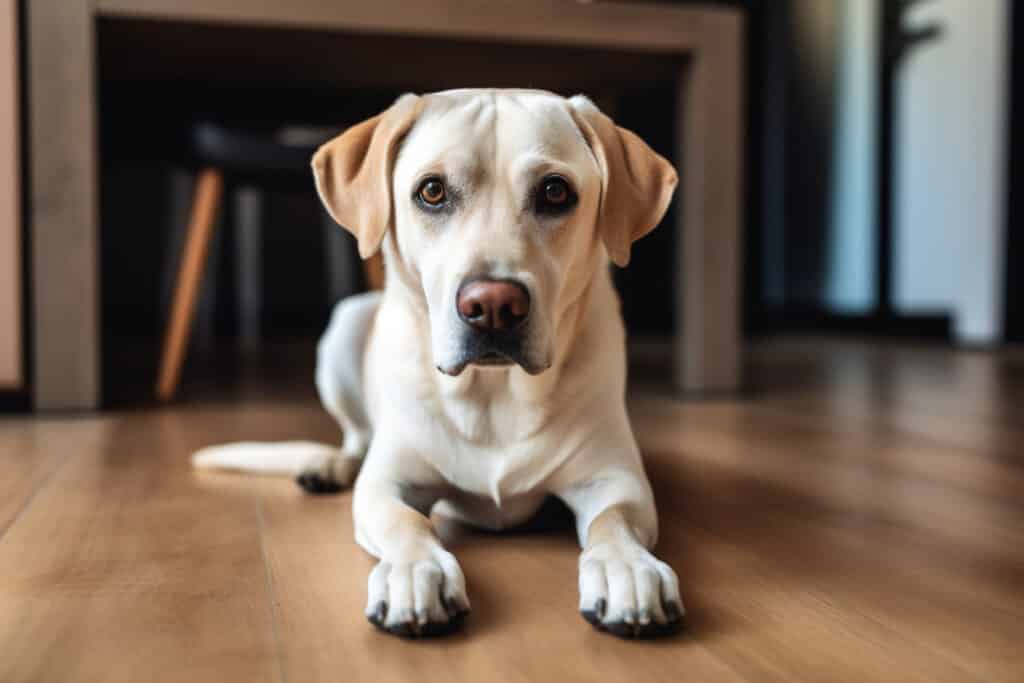
I can attest that maintaining a healthy diet is crucial when addressing dog not eating but drinking water, or my dog is not eating or drinking water scenarios. Start by closely monitoring your dog's weight and appetite. Make note of any changes in feeding habits or patterns which could indicate underlying health concerns.
Ensure your fussy eater dog consumes balanced meals tailored to his specific needs—consider consulting with a veterinarian on suitable options for him. Dog behavior and appetite can also be influenced by environmental factors; strive to create a comfortable space during mealtimes and avoid distractions for optimal digestion.
Finally, establishing consistent dog feeding habits helps regulate their body’s internal clock and promotes better overall health. Remember: An ounce of prevention truly is worth a pound of cure!
Thoughts…
It's essential to keep a close eye on your dog when they're not eating. As we've discussed, loss of appetite in dogs can be due to several reasons ranging from simple pickiness to more severe medical conditions. It's crucial to rule out any potential health issues by consulting with your veterinarian.
Remember, prevention is better than cure. Maintaining a healthy and balanced diet for your dog goes a long way in ensuring their well-being and preventing appetite issues down the road.
A sudden change in food preferences might just be a storm in a teacup; however, consistency is key – don't give in entirely to their whims and fancies!
I encourage you to try various home remedies and tips mentioned earlier to help coax your canine companion into eating again. Keep experimenting until you find what works best for both you and your dog!
Remember that patience and persistence are vital during this process – after all, Rome wasn't built in a day!
What should I do if my dog is not eating?
If your dog is not eating, first try to identify if there are any changes in their environment or behavior that might explain why your dog is not eating his food but will eat treats. Observe if your dog isn't eating but acting normal and consider trying some home remedies for a sick dog not eating, such as offering a bland diet or warming their food. If your dog is not eating and weak or won't eat or drink and just lays there, consult a veterinarian as soon as possible.
When should I worry about my dog not eating?
You should worry about your dog not eating if the loss of appetite in dogs persists for more than 24-48 hours, or if you observe other concerning symptoms such as your dog not eating but drinking water, your dog is not eating or drinking water, or exhibiting signs of weakness and lethargy. Also, be aware of any underlying health concerns or behavioral issues that might cause canine appetite issues.
What causes a dog not to eat?
There could be several reasons why your dog is not eating, ranging from fussy eater dog behavior to medical issues. Some common causes include changes in the dog's environment, stress, dental problems, gastrointestinal issues, and illness. Monitor your dog's feeding habits and food preferences to determine the reasons for your dog not eating.
How long can a dog go without eating?
The length of time a dog can go without eating depends on factors such as size, age, and overall health. A healthy dog can go up to three to five days without eating, but it's crucial not to let your dog go without eating for too long, as this can lead to malnutrition and other health problems.
What to do if your dog is not eating?
If your dog is not eating, start by ruling out any obvious reasons why your dog won't eat, such as a change in dog food preferences or environmental factors. If your dog is not eating but acting normal, try offering their favorite treats, and if your dog is not eating and weak, consult your veterinarian. You can also encourage your dog to eat by enhancing the smell and taste of their food or offering a more palatable diet.
How can I prevent my dog from not eating?
To prevent your dog from not eating, focus on maintaining a consistent feeding schedule, offering high-quality dog nutrition, and ensuring a comfortable and stress-free environment. Regularly monitor changes in your dog's appetite and overall health and consult your veterinarian if you notice any issues or have concerns about your dog's feeding habits.

